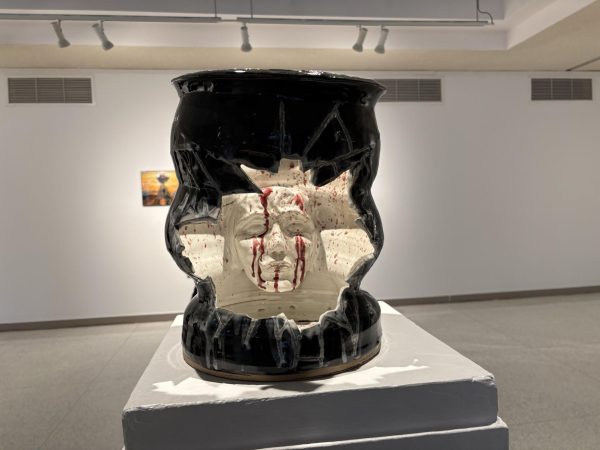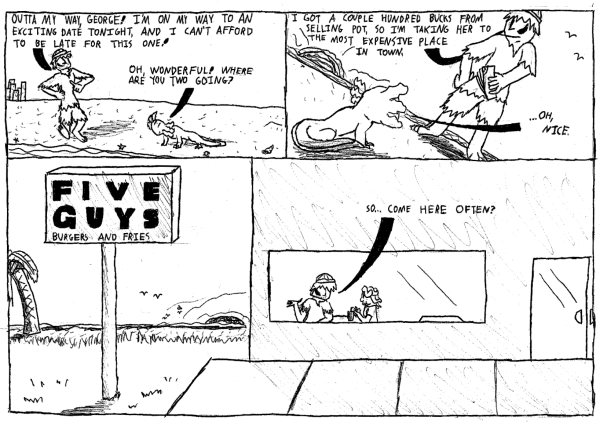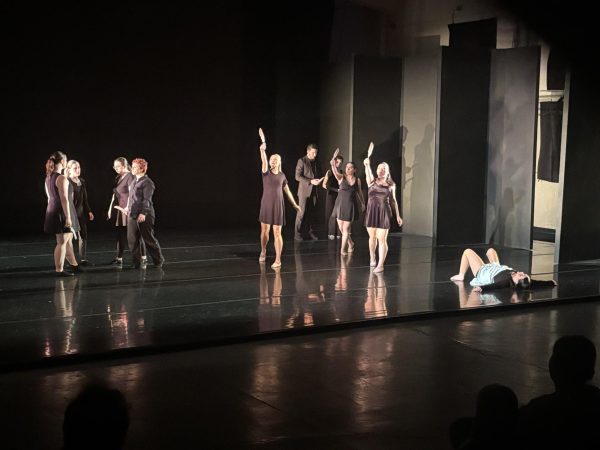Award winning activist presents keynote on injustice
Reverend Dr. Allen Boesak reflects on Martin Luther King Jr.’s legacy
Reverend Dr. Allan Boesak visited Allegheny College this week to take part in the college’s observances of Martin Luther King Jr. Day.
Boesak, originally from South Africa, was a vocal activist against the Apartheid that separated blacks from whites in South Africa until 1992. Since that time, Boesak has continued to voice his opposition to injustice around the world, writing 18 books and receiving numerous awards for his activism including the Robert F. Kennedy Human Rights Award.
to voice his opposition to injustice around the world, writing 18 books and receiving numerous awards for his activism including the Robert F. Kennedy Human Rights Award.
Boesak was introduced by his friend, and fellow South African Dr. Juvia P. Heuchert, professor of psychology at Allegheny. Boesak began his remarks quite light heartedly, joking about the weather in Meadville compared to South Africa.
As Boesak got into the main part of his speech, he explained that Allegheny played a role in South Africa’s struggle against the Apartheid. Students at the time, he said, supported the cause and put pressure on colleges to remove endowment investments out of South African companies, putting an economic pressure on the government to end the segregation.
“This is my first time here, so let me thank you for what you have done in those days. Let me thank you, for your dedication. Let me thank you, for your support. Let me thank you, for the way in which you upheld us in some of the darkest moments of our lives and our struggle,” said Boesak.
He went on to speak at length of the struggle of the Apartheid in South Africa. When he met his first congregation as a young minister they were a group in turmoil, many being forced from their homes because their land had been designated for whites. It was here that his struggle would start.
“I would never be the same again,” he said.
Boesak revealed that at this time it was illegal to listen to the recordings of Martin Luther King Jr. in South Africa. In 1968, he heard King’s words for the first time when a friend played him a tape with one of King’s speeches on it. The tape had to be smuggled into the country.
“I was struck not just by that voice or by the gripping and soaring rhetoric, I was moved by the prophetic unfolding of the story for us today by the sheer power of the truth he spoke,” said Boesak.
After a pause, Boesak stated simply that it was that one recording that changed his life. He spoke of the way King inspired him and the entire movement in South Africa. He explained how it made him and others realize that violence was not a solution.
“Lifting the sword, destroys the soul,” he said simply.
Boesak went on to say that over the years we have watered down who King was and what he stood for, creating a stir in the assembled audience in Ford Chapel.
“It is disturbing to see how much effort is going into creating a Martin Luther King much more manageable than he was, a profit much more palatable than who he was, a King much more controllable than he allowed himself to be,” said Boesak.
Following his remarks, Boesak expressed his optimism for the future in the U.S. specifically.
“There are these pockets of generosity and compassion and it’s connecting these pockets to the rest of the world,” said Boesak.
The observance of Martin Luther King Jr. Day did not stop at the doors of Ford Chapel. Throughout the day numerous workshops were provided in Quigley Hall which covered topics ranging from injustice in the public education system to a discussion of what exactly injustice is.
A workshop on the injustice in public schools was led by Dave Roncolato, director of civic engagement and professor of community and justice studies, and Charmaine Wilson, assistant director of civic engagement, and director of the Bonner program .
.
Wilson, originally from Dunkirk, N.Y., grew up in Erie where the public school system was subpar at the time. This issue, she said, is personal for her.
“Being a product, from a person who has actually been in public schools that were just failing, it’s sad to see that it’s still happening,” said Wilson.
Many of the students in the room had firsthand knowledge of the education inequality that exists in the United States. Anacelia Gonez, ’15, a New York City native, shared her own story of family members who are struggling in underfunded schools, while more and more students seek out better funded charter schools.
“A lot of parents are taking their kids to charter schools, and public schools are just largely underfunded,” said Gonez.
Boesak also spoke of the inequality that exists in the U.S., not only in education but in wealth. He stated that he sees this gap as the largest hurdle we will face in achieving equality. He also stated his belief that it could become a tipping point in the future.
“If I were a politician, I would see that as an instability in our society,” he said.







